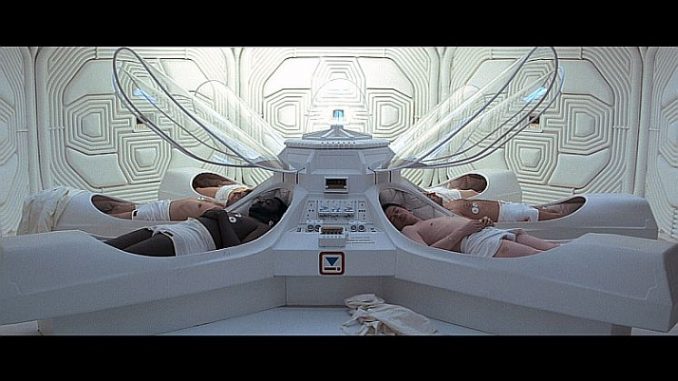
Scientists are finding ways to help astronauts in their deep space flights. Trials are under way to put the astronauts into an induced long sleep, to hibernate during the long journey.
European Space Agency scientist and NASA are experimenting with some techniques from the animal kingdom. It would be nice to hibernate away the tedious long journey just like in the film, Alien. Bears hibernate in winter when there is no action, i.e. food. Astronauts could wile the time away in their comfy sleeping modules.

BYPASS THE CENSORS
Sign up to get unfiltered news delivered straight to your inbox.
You can unsubscribe any time. By subscribing you agree to our Terms of Use
Latest Video
One lesson that NASA and the European Space agency could learn from the magnificent film, Alien by Ridley Scott, is to be mindful of the malevolent aliens!. As in the film, it was an alien vessel that manipulated the doomed commercial starship Nostromo towards its distress beacon while the crew were hibernating. The film might be a work of fiction, but for the people who saw the masterful Oscar winner it touched a spot.
The Independent reports:
According to Leopold Summerer, the head of the advanced concepts team at the European Space Agency, research could put “some science fiction into the realm of science reality” within our lifetimes.
Taking lessons from the techniques used by animal hibernators, sciences are already using some of them in experimental medical therapies such as therapeutic hypothermia, which involves lowering the body’s temperature for several days at a time, to help treat people with traumatic brain injuries.
Trials are now being conducted to see whether there was a way to keep astronauts in a sleeplike state for days or weeks using temperature without any ill effects, something that may be required for deep space travel.
Summerer told the Washington Post: “It doesn’t mean we will have hibernating astronauts anytime soon, but we are learning from nature how to understand some of the things that happen to animals during hibernation, such as preventing bone loss or preventing muscle loss. This is already something that would be a great benefit for long-distance space flight.”
NASA funded a study last year to study the idea of astronaut hibernation. The proposed benefits include a cut in food and water required on the spacecraft, reduction in waste and less space need for exercise and entertainment.
Putting the crew to space might also minimize the psychological challenges associated with deep space flight.
In recent years, NASA has invested millions into studying the effects of long term effects of living in space.
Last year, it announced it would be conducting a study on two identical twins to see how space affects the body.
Scott Kelly, 50, has been sent to the International Space Station for an entire year, twice the duration of a normal stay on the facility, while his identical twin brother Mark remains on the ground.
Both men will be subject to 10 separate investigations monitoring everything from how their digestive tract to how their genes change due to spending a year in space.


